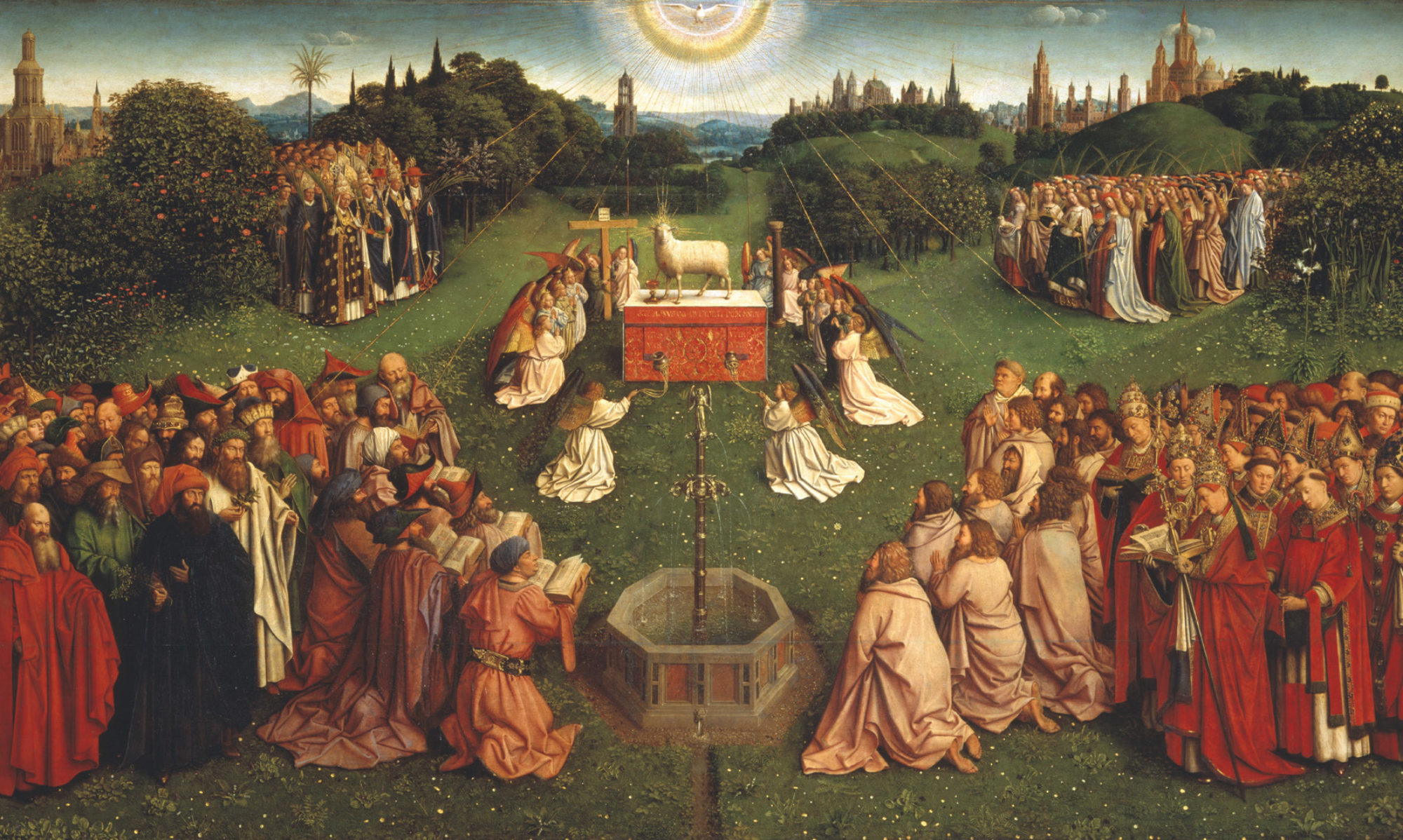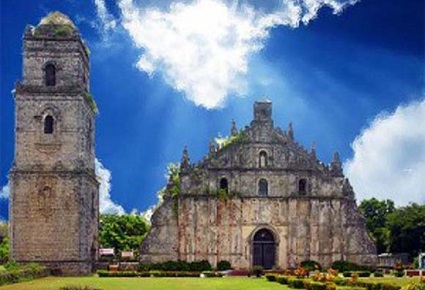The first Bishop of Manila was Domingo de Salazar, who arrived in Manila in the fall of 1581 and erected a temporary cathedral a few days before Christmas of the same year. One of Salazar’s first acts of government was to address the many problems of Church governance in the new Spanish colony. It had only been ten years since the Spanish had taken Manila, and things were still very much in a state of disarray. Evangelization had begun under the auspices of the Augustinians, Franciscans, Jesuits, Dominicans, and a handful of secular priests. Salazar believed the local church needed to adopt uniform policies for the various moral questions the work of evangelization would inevitably bring, as well as a coordination of missionary work. For these reasons, Bishop Salazar summoned a synod in 1582 to establish norms for the governance of his diocese.
The Participants and Subjects of the Synod
At the time, the diocese of Manila encompassed the entire Philippine archipelago, comprising over 7,100 islands taking up around 115,800 square miles of landmass with a population of around 1.5 million. Servicing this mass of humanity was only a handful of clergy, mainly in religious orders. Given the scarcity of clergy, the synod was essentially an assembly of the bishop and his advisers representing the religious orders. Not all of the clergy supported Salazar’s decision to call a synod; some believed things were still too unsettled, that there had scarcely been time to establish an ecclesiastical infrastructure and that a synod should way for a more suitable time. Salazar, however, insisted and the synod went on as planned. Representing the Jesuits were two priests, Fr. Antonio Sedeno and Fr. Alonso Sanchez, and one lay brother, Nicolas Gallardo. The Dominicans were represented by Fr. Cristobal de Salvatierra, the secretary of the synod whom Salazar made governor of the diocese. Various laymen were also invited to give their version of the problems to be addressed.
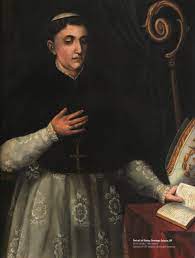
The problems were manifold; most concerned the relationship between the Spanish government officials and encomenderos (colonial land holders worked by native labor) and the relations of both with the Filipinos. There were of course blatant abuses to be dealt with—encomenderos demanding labor and tribute far beyond what the law permitted, robberies of Filipinos by Spanish soldiery, unprovoked attacks on peaceful villages, and Spanish demands for free labor from Filipino peasants. But there were other issues whose resolutions were not so clear: To what extent did the government or encomenderos have a right to collect tribute from Filipinos? What was a just amount of tribute to be paid? What were fair wages that Filipinos must be paid by Spaniards? To what extent were Filipinos obliged to work on government projects or those of the encomenderos?
There was also the problem of restitution for injustices committed. Who was obliged to pay whom, and to what extent? Catholic moral theology was clear on this point—those who committed injustice were obligated to make restitution to their victims. But how this was actually implemented was quite intricate and confessors were of varied opinions.
Finally, perhaps a question most fundamental to all these issues—upon what grounds did the Spaniards have the right to come into the country and rule over the Filipinos at all? Did the King of Spain have any right to rule the Philippines? If so, from whence did he derive this sovereignty, and what were its limits?
The Question of the King’s Title
The question of the king’s title was the fundamental dilemma at the heart of the Synod and the one Salazar addressed first.
All of the jurisdictional acts of the conquistadores, governors, and encomenderos were carried out in the name of the king and on royal authority. Whence did the King of Spain derive this authority over the Philippines? Did he have a just title to this claim? If he did not, it could be argued that all Spanish jurisdiction in the Philippines was invalid. It is interesting that the synod did not simply reaffirm and appropriate prior arguments in support of Spain’s claims in Mexico, Peru, and elsewhere. Rather, they chose to consider the status of the Philippines in concrete, without reference to other Spanish conquests.
The acts of the synod of not been preserved, but based on the reports written after the fact by its participants, there seems to have been considerable debate on this point. All agreed that the King of Spain had no natural law title to the Philippines and that it had not been acquired through any just war. The argument to Spain’s title seemed to be based on the privilege of Patronato Real, by which the Church gave the Spanish crown the right and duty to preach the Gospel in newly discovered lands. Now of course, this did not imply any sort of temporal authority. The synod recognized this as well; as they put it, “the Pope could not give the King more that he himself has from Christ, which is the right and power to send men through the whole world to preach the Gospel.” (1) However, the right to preach to all men implied an obligation on the part of all men to allow the Gospel to be preached. They could not be compelled to become Christians, but neither could they forbid others from preaching Christianity or accepting it when preached to.

The implication was that if any society were sophisticated enough that the Gospel could be preached without hindrance, then the king would have no justification in taking over such a land. In the case of the Philippines, the king’s title was justified because the condition of the Philippines was such that it would be impossible to preach without the backing of Spanish authority. Thus the king was justified in taking sovereignty over the Philippines.
This sovereignty, however, was said to be a “supernatural sovereignty”: that is, its source was grounded firmly in the commission to preach the Gospel to the Filipino people. It did not give Spain the right to completely remove the authority of native rulers and institutions, much less to expropriate their property or enslave them. “Supernatural sovereignty” implied a sort of paternalistic imperialism where the Spaniards exercised a supervisory role over the Philippines, but only to the extent that it was necessary to facilitate the preaching of the Gospel.
Objections and Refutations
The synod fathers seemed to have realized there would be objections to their rationale, so they spent considerable time addressing hypothetical arguments against the theory of Spain’s supernatural sovereignty.
For example, if the justification for Spanish rule was that the Philippines were not governed well, what should be said about Spanish corruption and misgovernment? The synod fathers pointed out that “almost all the captains and judges whom the king places in this government carry out their task so badly and with so many acts of injury and oppression that one can they do it just as badly as the natives.” (2) If this were the case, why not leave authority with the natives, since they have a natural law claim, while the Spaniards only have title on the claim that they are remedying the misgovernment of the natives? The answer to this objection was that the bad acts of the king’s officials did not negate the king’s sovereignty, although he had a moral obligation to remove and punish corrupt officials.
The counter-objection to this was the following:
It could be that we have deceived ourselves and have done much injury to the Indios in thinking they are not capable of governing themselves like this. For we do not understand them, nor do we know their language, nor their customs, nor their method of governing themselves. Perhaps if we did understand this, we would see that they could also govern just as well as well, and that perhaps we are more savages in their eyes than they are in our eyes. (3)
The response was that there was not sufficient evidence to prove that the Spaniards were deceiving themselves about the Filipinos. However, even if hypothetically it were true that the Filipinos could govern just as well as the Spanish, it would be a reckless experiment to leave such a matter to them when the consequences were so grave (i.e., the total breakdown of order in the Philippines if it were managed poorly). The synod fathers then opined that “when we judge that they are capable enough, and the other two circumstances of rectitude and loyalty are also present, the government should be left to them.” (4) Of course, the Spaniards would never decide that the Philippines were ready for self-government; it had to be seized in the revolution. Nevertheless, it is of interest that the concept of a graduated return to self-government should have been supported, even in principle.
In the end, the synod affirmed the king’s title based in supernatural sovereignty. Two important conclusions flowed from this position: (1) that in those places where the Philippines had already been completely pacified, the king and his governors had a moral obligation to give authority to Filipino principales (eminent men) as governors and judges whenever possible, and (2) the king was obliged to assume the expenses of evangelization, as well as give his subjects just laws and remove and punish royal officials who failed to execute them.
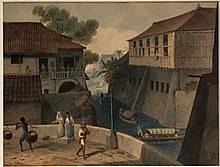
Making Restitution for Abuses
The Synod of Manila devoted considerable effort to considering how the clergy could help confront abuses perpetrated by Spanish authorities. Each rank and office was examined and various types of injustices were chronicled. In general, the synod was insistent that, if an injustice had been committed, no confessor should absolve the guilty party unless and until he made restitution to those who had been injured. If the victims of injustice were dead, restitution should be made to their heirs. If neither they nor their heirs could be found, the obligation of restitution still remained. In these cases, any ill-gotten wealth was to be placed in a fund to be used for the benefit of Filipinos. Some specific cases were taken up; for example, Governor Sande (1575-1580) was denounced as having waged an unjust war against the Islamic Sultan of Brunei in 1578. The synod decreed that Sande and all who had taken part in the expedition were to make restitution to the people of Brunei for the damages they had caused through their unjust aggression. (5)
The synod also rejected the objection that the laws could not be enforced in the Philippines as in Spain. On the contrary, the synod taught it was especially important to enforce laws justly in the Philippines, since the Spanish only survived through Filipino labor and foodstuffs. Another objection was that the Spaniards were so few that if corrupt officials were all dismissed there would be nobody left to govern the colony. To this the Manila Synod bluntly replied that not all officials needed to be severely punished, but that if one or two were hanged to make an example of, it would go a long way towards establishing the good will of the Filipinos, since it would demonstrate that justice was being applied equally.
Throughout these discussions, we see the recognition that the problems were perpetrated by individual soldiers or government officials, not by any official Spanish policy. In fact, the synodal condemnations all emphasize that it was the failure to carry out royal policy that was responsible for many of the abuses endemic throughout the Philippines. The greatest culpability lay with the Governor, who was ultimately responsible for the nature of his administration. Even if it were not possible to punish every act of injustice, he should at least remove corrupt officials when necessary. Regarding the Governor, the synod declared:
Let the one who hears the confession of the Governor not absolve him without consulting extensively to find out how he fulfills the obligations of his office, which are very many. [Moreover] preachers should make known the obligations of office, both publicly and privately, with holy freedom of speech, even while maintaining the decorum proper to the person and the place. (6)
The synod also enumerated specific duties of the governor and prohibited certain actions, such as the monopolization of trade for personal gain, giving of unjust advantages to his cronies, etc. Also condemned were wealthy Filipinos, principales, who aided the corrupt Spanish officials for their own private gain.
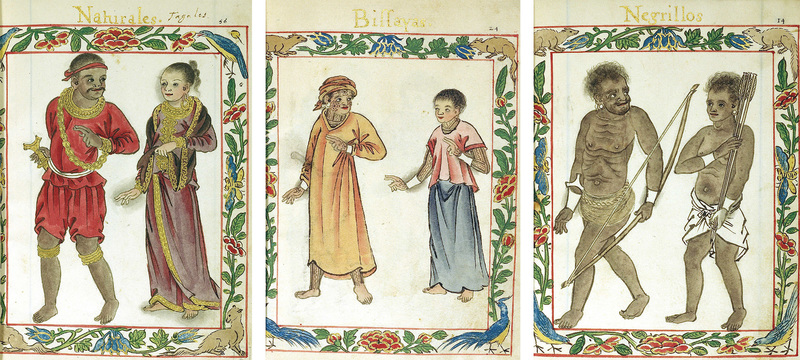
The Question of Forced Labor
The synod devoted considerably discussion to the question of whether the governor could compel Filipinos to forced labor. The nature of Filipino forced labor in the 16th century was not so much agricultural as in the Americas, but in naval impressment—it was common to seize Filipinos from coastal villages and compel them to serve as crewmembers in Spanish expeditions to the Moluccas.
The synod of course declared on pain of mortal sin that the governor had no such right to impose such burdens on Filipinos, but what is interesting is the rationale offered. The prohibition was grounded in a concept of the fundamental personal dignity of the Filipino people. The Filipinos could not be conscripted on Spanish expeditions
because the Indios are just as free in their land as the Spaniards are in theirs. This liberty of theirs has not been taken away either by the king or by the Gospel. (7)
The synod also said that Filipinos could not be conscripted to row for shorter trips, nor compelled to cut timber, move stone, or perform menial labor. Already in those days Spaniards were responding to such injunctions by responding that, if left in such liberty, Indios would never do any work at all. The synod responded:
First, the king has already determined the amount of tribute they should pay and in all else he leaves them free. Second, just because they have received the Gospel, that does not place on them any obligations to serve anyone in particular nor all in general. And so let the Spaniards serve one another, just as they do in Spain. For it is ridiculous that just because a man, whether or lowly or noble condition, passes to the Indies, he should wish to acquire a right to be a gentleman and lord of vassals by means of the violence and thousand injustices they inflict on the miserable Indio. (8)
If the governor should compel anyone to labor on a project that concerned the common good (for example, a levee for the construction of roads, bridges, or canals), the burden should fall on Indio and Spaniard alike.
The conclusion the synod drew from these considerations was the fundamental equality of Spaniards and Filipinos before God. The Indios had a natural right to their land that, whenever possible, should be respected. Indios should be empowered:
The governor…should put in the larger and more stable towns Indio judges, chosen by the Indios themselves, who should take care of general justice and good order and settle ordinary disputes. (8)
Concerning Encomenderos
The bulk of synodal decrees concerned the rights and obligations of encomenderos. In the Spanish colonial system, an encomendero was an owner of agricultural land (encomienda) worked by an assignment of native laborers portioned out by the government. Since the synod’s only justification for Spanish presence in the Philippines was to preach the Gospel, it conceived of the role of the encomendero as one of communal responsibility rather than personal profit. If the encomendero was essentially a delegate of the king charged with carrying out his decrees, then the encomendero, too, had responsibilities to the natives. The synod viewed encomenderos in a paternalistic sense, as one of “responsibility” for the Indios committed to his charge. They must understand that their role is to attend to the good of the Indios, not impose tribute on them for profit. He was to defend them against outside attacks and protect them against abuse by corrupt officials.
The encomendero’s most important duties were spiritual. He was to aid missionaries by encouraging the natives to leave their remote settlements and come together in villages to make evangelical work easier. He was to introduce settled life and teach them the ways of civilized life. Of course, he was to see that they were instructed in the teachings of the Church. This was done by providing material assistance to the missionaries in the construction of churches, and—if missionaries were lacking—providing rudimentary instruction in the Faith himself, as well as extirpating pagan practices.
Only when he had fulfilled these obligations was the encomendero justified in collecting tribute from those entrusted to him. He must reside in his encomienda and collect the tribute personally. If there was yet no church established, he must discount the part destined to support the worship of the Church. If he did not observe his spiritual duties, then he had no right to collect tribute at all, since only the preaching of the Gospel gave the Spaniards any right to be in the Philippines at all.
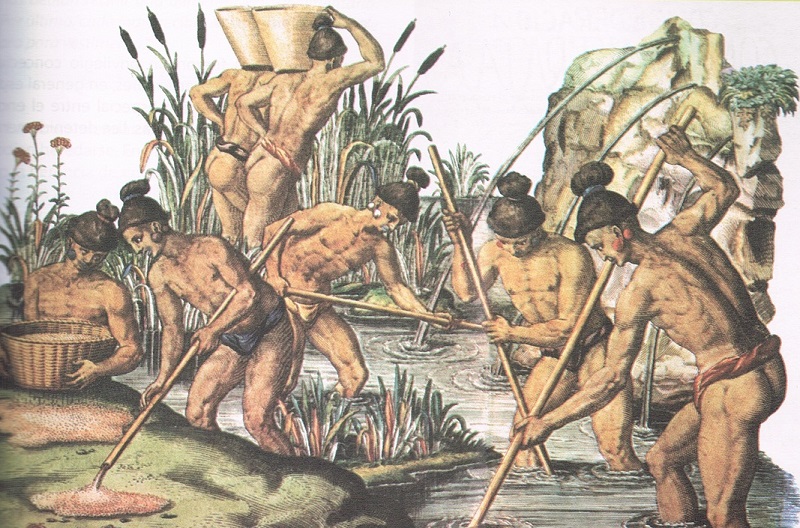
Finally, the synod dealt with the issue of restitution owed by encomenderos to natives they had wronged. The obligations of restitution were not left vague, but worked out in minute detail. Anything unjustly taken must be restored; if the defrauded were no longer living, their heirs must be sought out, and in absence of these, payment should be made to the villages or provinces where the victims of injustice had come from, and there be spent on community needs. The synod specified that restitution should not be made by giving to churches or pious causes, least of all those which benefit the Spaniards. One interesting decree was that restitution could not be made privately through a confessor. Since the injustice and scandal to the Gospel had been public, the restitution needed to be public as well. Filipinos had to see that encomenderos were making restitution for their abuses.
One of the most radical positions of the synod was the concept of restitution in solidum. Restitution in solidum had to do with situations where injustice had been committed by a group and the responsibility of individual participants needed to be determined (e.g., if a band of twenty Spaniards plundered a Filipino village unjustly, what was the restitutionary responsibility of each member of the raiding party?) Restitution in solidum meant that, under certain circumstances, each individual was responsible for the full amount of restitution, not merely his own personal share. Using our example above, suppose twenty Spaniards robbed a Filipino village of one hundred pieces of gold, which was then apportioned out at five gold pieces per person. Now, suppose a decade goes by, and half of the original members of the raiding party are dead. If the surviving members seek to be absolved for their crime, they must now payback not five gold pieces each, but ten gold pieces each to make up the defect from those who had died. If fifteen of the original twenty men were dead, the five remaining men would be obligated to restore twenty gold pieces each. And, if all of the party had died save one, that one man would be obligated to personally restore all one hundred pieces of gold, even though he personally had received but five gold pieces in plunder.
Restitution in solidum may seem harsh, but it was meant to compensate Filipinos for situations where a substantial amount of plunder had been expropriated in totu, though each individual man’s share might have been small. It was a failsafe meant to guarantee that the total sum owed was paid back regardless of whether every individual participant was still around.
Basic Synodal Principles
The principles upon which the Synod of Manila based its conclusions can be boiled down to six essential points.
1) All persons of whatever race of religion have certain natural rights which cannot be arbitrarily taken by pope or king, including the right of property and the right to rule themselves.
2) Those in places of authority, whether king, governor, or encomendero, are to view their office as one that obliges them to work for the common good and individual good of those under their rule.
3) Positive injustice done to any person as well as injustice done by neglect both merit restitution to those who have been injured.
4) Even if the persons to whom injustice has been done cannot be found, the obligation of restitution still remains; no one can remain in possession of ill-gotten gain. He must make restitution the best way possible.
5) The clergy have a right and duty to call attention to abuses against justice, especially the poor. This is integral to their mission to preach the Gospel.
6) It is not only the right but the duty of the Church to exclude and deny sacraments to those who refuse to fulfill their obligations in justice, regardless of their rank.
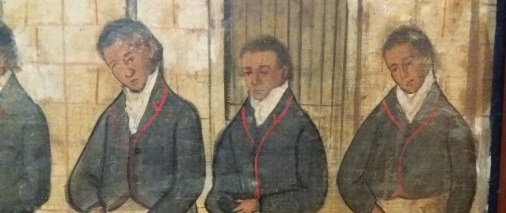
The Success of the Synod
To what degree was the Synod of Manila successful in redressing the abuses it condemned? Historian of the Philippine church John Schumacher, S.J. (to whom I am indebted for his work on this subject) says:
It would be utopian, of course, to think that such declarations totally changed the thinking of the gold-hungry adventurers who had come to the Philippines to be treated as hidalgos by inferior races. Ecclesiastics as well as laymen would often in the succeeding centuries think in terms of superior races. But it was a great gain to have this basic Christian truth [the equality of all men before God] spoken out and proclaimed as a Christian belief…
Even if the norms of justice were not complied with, it was the duty of the Church to lay them down clearly. If many ignored them, that was lamentable and deserving of condemnation. But if they were not enunciated clearly in the first place, there was no hope that justice would ever be done and the Church would not have borne witness to the Gospel it was preaching to the Filipinos. As a matter of fact, it was reported that some Spaniards no longer went to the sacraments, since they knew that they would not be absolved. At least, however, the truth of the Gospel had been witnessed to by the Church. (9)
The synod’s decrees were announced in the cathedral by Bishop Salazar. The immediate reaction was violent and hostile. The synod was the occasion of a fierce dispute between Governor Ronquillo and Bishop Salazar, the stress of which some said led to Ronquillo’s untimely death shortly thereafter. One chronicler related that “the religious had much to suffer from the encomerendos, one of them receiving a blow in the face from one of these angry men” (10). The bishop even received a death threat from a man who cautioned him to moderate his zeal, for if he refused, the man boasted he was capable of hitting a mitre at fifty paces with an arquebus. The Jesuit Fr. Hernan Suarez, writing to his superiors in Rome in 1585, stated that most conquistadores did not go to confession for two years after the synod, and that only recently had the bishop persuaded some to return to the sacraments by making some concessions.
Many, however, did make restitution, though with groans and complaints. We know this because a fund was established called the caja de restituciones, into which payments to injured parties who could no longer be found was paid. These funds were paid out to the poor or victims of natural disasters. The decree of restitution in solidum, however, proved to impracticable to enforce. The bishop relented and allowed each man to pay only his individual share, while seeking the difference to be made up by the king. In 1586, Bishop Salazar sent a letter to King Philip II describing the situation and asking for remedy. It is worth quoting at length:
Let His Majesty be informed that since the land has just recently been conquered, the greater part of the conquerors are still alive. In the conquest they committed many injustices, and since the Indios whom they injured are likewise still living, or their heirs are, or at least the villages and provinces exist, the confessors are unwilling to absolve the conquerors unless either all joined together to pay the amount, or each one pays the whole amount in solidum. This they will never do, since many are involved, end of those many are dead or departed from the country or are poor. And so those who remain are few…hence they ask that since these injustices were done in the course of winning the land for His Majesty…he helped them with a certain sum of money so that together with what the conquistadores are ready to pay they can make satisfaction to the Indios. Thus they will be able to go to confession and be at peace. (11)
King Philip assented to Salazar’s request and made a grant of 12,000 pesos which, when added to the amount pledged by the conquistadores, was able to make satisfaction to the Indios.
Quarrels over these matters continued, however, prompting Bishop Salazar to make a trip back to Spain in 1590 at age 78. Four years later, Salazar would be dead. In 1600, the Dutch Wars threatened the very existence of the Spanish Philippines. Faced with an existential threat, the Spanish yoke grew heavier as Filipinos were pressed into forced labor to cut timber, build ships, and manning them for war. Though abuses continued throughout Spain’s administration of the Philippines, the Church continued to denounce them as well. The leaders of the Philippines church, men like Salazar and his successors, recognized that Christianity would have no credibility among the Filipinos if it failed to cry out boldly against all that was done in contradiction to the Gospel that was preached.
This essay is a summary of the excellent essay “Dominigo de Salazar” by John N. Schumacher, S.J., found in his book Growth and Decline: Essays in Philippine Church History. I am indebted to Fr. Schumacher for his excellent research.
(1) John N. Schumacher, S.J., “Domingo de Salazar”, in Growth and Decline: Essays in Philippine Church History (Ateneo de Manila University Press: Quezon City, 2009), pg. 5
(2) Ibid.
(3) Schumacher, 6
(4) Ibid.
(5) Ibid., 8. The contemporary Governor Ronquillo was also implicated for appointing unfit officials, whose guilt he shared by refusing to punish them.
(6) Ibid., 9
(7) Ibid., 10
(8) Ibid., 11
(9) Ibid., 11, 16
(10) Ibid., 17
(11) Ibid., 16
Phillip Campbell, “The Manila Synod of 1582,” Unam Sanctam Catholicam, June 20, 2022. Available online at http://unamsanctamcatholicam.com/the-manila-synod-of-1582
